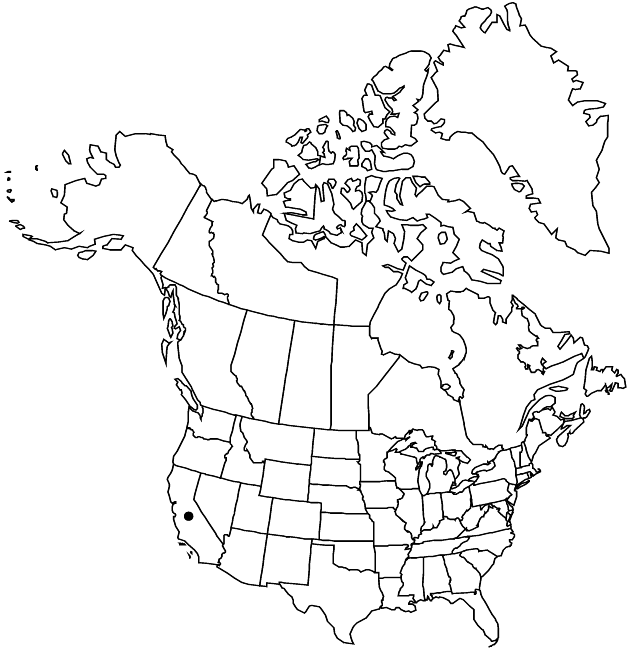Layia carnosa
Fl. N. Amer. 2: 394. 1843.
Plants 2–18 cm (self-compatible); glandular, not strongly scented. Stems not purple-streaked. Leaf blades oblong or ovate, 3–45 mm, margins (basal leaves) lobed. Involucres ± campanulate, 4–8 × 3–7+ mm. Phyllaries 4–10, apices shorter than folded bases. Paleae in 1 series between ray and disc florets. Ray florets 4–10; laminae white, 1.5–3.5 mm. Disc florets 5–45; corollas 2–4 mm; anthers ± dark purple. Ray cypselae sparsely hairy. Disc pappi of 24–32 white to tawny or rufous, ± equal bristles or setiform scales 2.5–3.5 mm, each proximally plumose, not adaxially woolly. 2n = 16.
Phenology: Flowering Apr–Jul.
Habitat: Coastal sand dunes
Elevation: 0–60 m
Discussion
Of conservation concern.
Layia carnosa occurs on the Central Coast and North Coast and in the San Francisco Bay area.
of conservation concern
Selected References
None.
